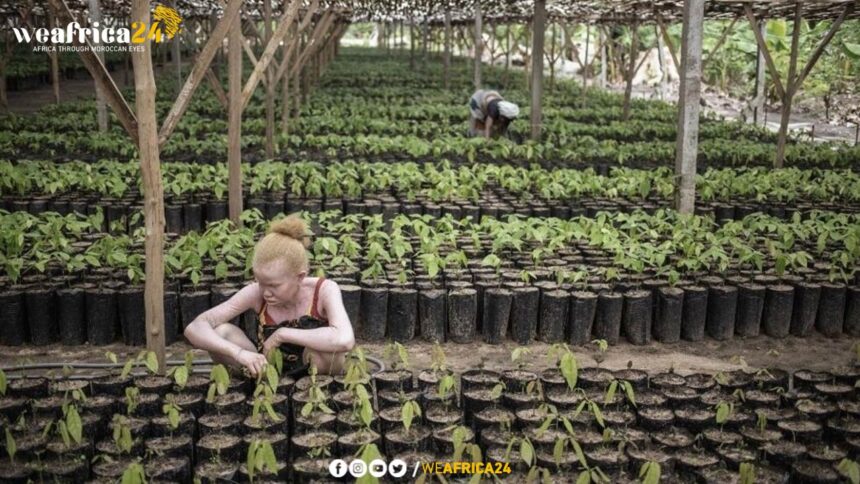There has been a disturbing increase in the abduction and torture of children with albinism. Since November last year, in the cyclone-prone southeastern region of the island, ten children aged between 6 months and 17 years have been kidnapped, some subsequently raped, brutalized, or killed.
The physical differences of these children fuel dangerous superstitions. It is believed that their eyes possess magical powers capable of locating precious mineral deposits even in the dark. This was the explanation given by some of the abductors arrested last month in the Mananjary district after they executed a kidnapped child when they could not find a buyer.
“In southeastern Madagascar, we believe that harmful superstitions, coupled with an increase in the humanitarian crisis, have led to a rise in the number of attacks,” explained Sabine Lauber, head of the Human Rights Office for the United Nations system on the island.
This region has been severely impoverished and its public services have deteriorated following the passage of three cyclones in two years. In response, authorities are attempting to secure targeted children by placing them in centers or orphanages willing to take them in.
However, this is not a sustainable long-term solution and cannot accommodate all children with albinism in the region. The gendarmerie has also started educating villages on better protection and response measures in case of an attack.
In neighboring countries that have faced similar situations, national strategies have been implemented with positive results that could serve as models for Madagascar. “What has worked well in reducing violence in East Africa, particularly in Malawi, Zambia, Tanzania, and Mozambique, is a comprehensive framework ensuring the safety of the person with albinism, as well as their family and community. Providing access to education, healthcare, employment, and respecting their dignity is crucial. Focusing solely on security does not solve the issue,” emphasized the Human Rights representative.
These long-term strategies are essential to curbing this phenomenon. In 2022, in response to a surge in kidnappings and murders of people with albinism, particularly in the extreme south of the country, international UN experts visited Madagascar and issued recommendations.
They emphasized the importance of prioritizing education and awareness programs to counter the myths and rumors that lead to the murder of individuals with albinism. Since then, little has changed in the country. According to the Human Rights Office, Madagascar now has the highest rate of attacks against people with albinism in the world.
This alarming trend underscores the urgent need for comprehensive and sustained efforts to protect the rights and lives of those with albinism, ensuring they can live without fear in their communities.







